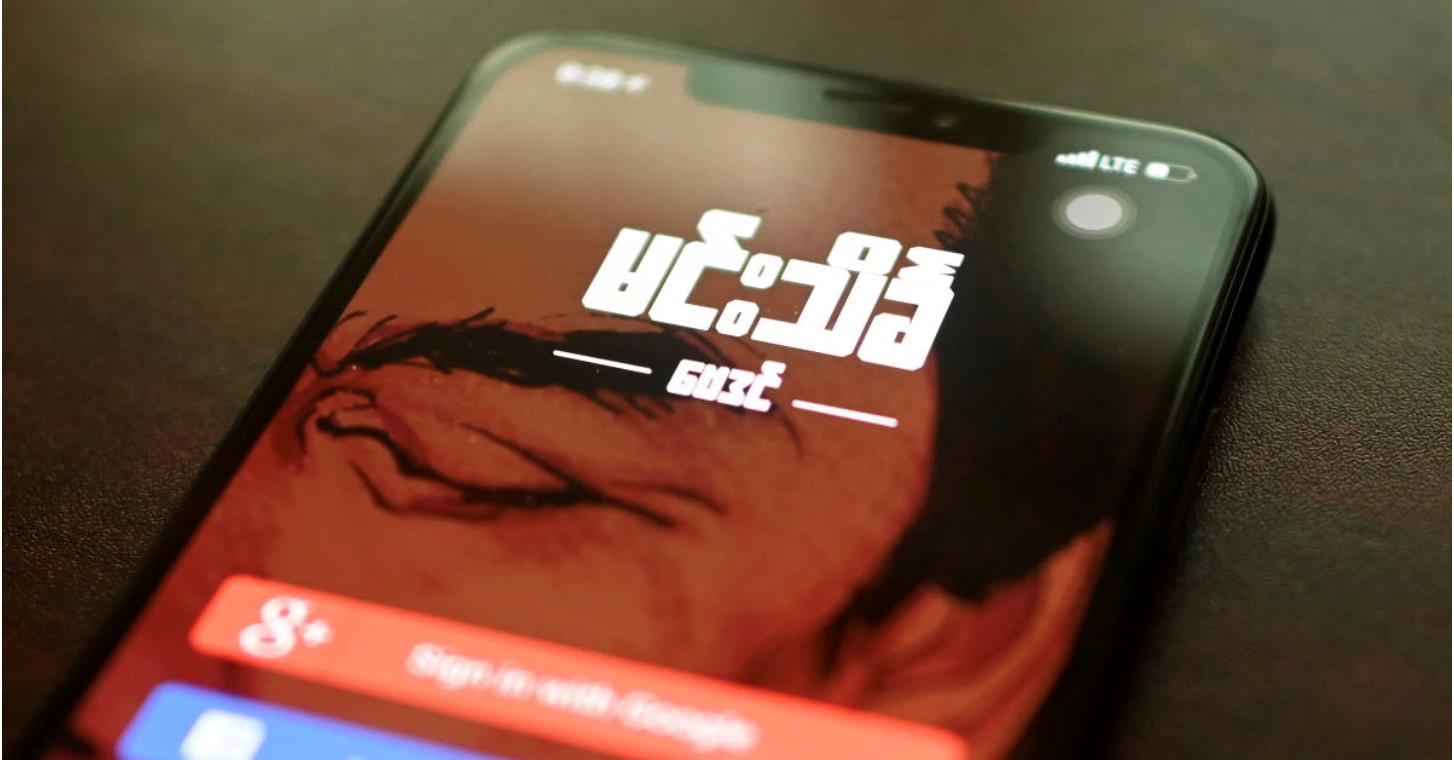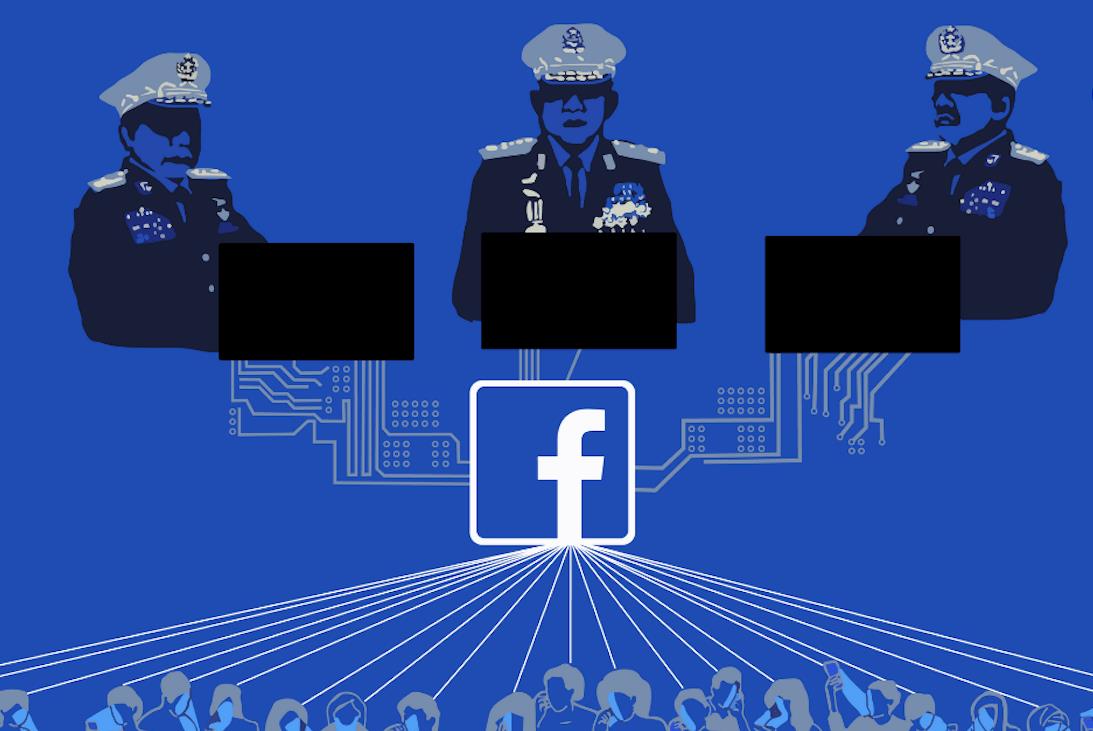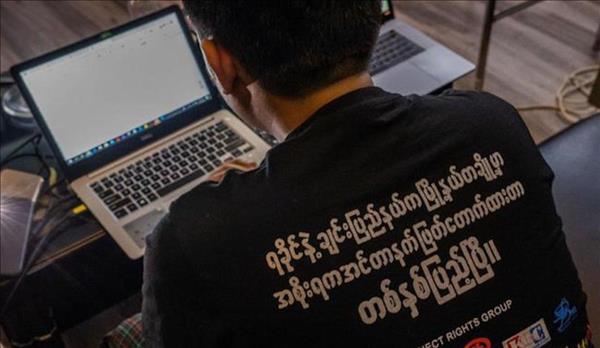
Junta cyber bill has Myanmar business up in arms
YANGON – Myanmar's military junta has been criticized by business groups and foreign investors for resurrecting a proposed law that seeks to shut down social media platforms and undermine internet privacy.
According to an official document not made public but leaked to Asia Times, the junta is proposing a draft cybersecurity law that criminalizes Virtual Private Network (VPNs), outlaws online gambling and mandates data localization.
Punishments for using a VPN without approval or online gambling include a fine of 5 million kyats (US$2,800), three years imprisonment, or both.
Personal data including name, internet and physical address and ID number will have to be stored for three years starting from the day of usage and must be provided to military authorities upon request.
“The military's new draft Cyber Security Law repeats the repressive provisions of previous drafts and adds more, seriously threatening the safety and security of Myanmar's digital space,” said rights group Free Expression Myanmar (FEM) in a legal analysis.
The new proposal“has also added a sixth vague category of expression that the military could order deleted: 'expressions that damage an individual's social standing and livelihood',” FEM said, referring to Article 35(f).
Due to the vagueness of the language, it said criticism against coup leader Min Aung Hlaing could now be a crime . The move is not surprising given the regime's record in cracking down on the digital space.
“Access to information is a fundamental human right. Since the coup, the regime has systematically amended multiple laws to restrict or criminalize free speech, freedom of assembly and basic human rights in its quest to consolidate control and undermine Myanmar's democratic institutions,” a Western diplomat in Yangon told Asia Times.
The provisions have fueled worries among businesses that operations would be even more difficult as Facebook has effectively been banned without a VPN.“They [the generals] want to turn Myanmar into North Korea,” a foreign corporate executive told Asia Times in the commercial capital.
Even the Union of Myanmar Federation of Chambers of Commerce and Industry (UMFCCI), the nation's top business lobby widely seen as pro-regime, has hit back.
The UMFCCI released a statement that said:“We see the development and strengthening of the digital economy is of utmost importance in the current business environment as well as in relation to the global economic landscape … The UMFCCI would like to urge the government to remove or reconsider restrictions on VPN since it has become an integral part of doing business, not only domestically but internationally as well.”

Myanmar could soon ban foreign social media platforms through legislation that will pave the way for online surveillance. Image: AFP
Ten international business groups have collectively come out against the proposals. Through a joint statement released on Friday, eight western chambers – the American, Australian, British, European, French, German, Greece and Italy – and the US ICT Council for Myanmar and the Asia Internet Coalition, said they are“deeply concerned” about the proposal and warn that the draft law“disrupts the free flow of information and directly impacts businesses' abilities to operate legally and effectively in Myanmar.”
“VPNs are a legitimate security device that protect businesses against cyber and financial crimes, and allow for secure access for businesses to support the overall digital economy,” the statement said.“International businesses depend on the use of VPNs to function effectively and securely, particularly when accessing secure corporate files and email servers outside of Myanmar.”
Access to information, technology and services is essential to operations and a healthy national digital economy, the chambers said.
Rights groups are also up in arms.“Any sort of online freedom of expression will be destroyed by this draft law, leaving the Burmese people in the dark,” said Phil Robertson, deputy Asia director of Human Rights Watch.“The junta thinks that if it cuts off internet communications it can win, but in fact it severely underestimates the damage this law will cause to the economy if passed.”
This time the regime might decide to force through the legislation despite the backlash. But doing so would deepen the growing divide between the generals and the business community, and seriously undermine the regime's mainly futile attempts to woo investors.
The draft law is also widely seen as a litmus test for business advocacy, after recent controversies surrounding some commercial bodies accused of legitimizing the junta.
“It is essential for foreign chambers of commerce and international businesses in Myanmar to use all leverage available to push back against this law, in accordance with their international human rights responsibilities. Now is the time to speak up,” said activist group Justice for Myanmar spokesperson Yadanar Maung.
“The junta is an illegitimate body that has no authority to pass laws. The cyber law is an appalling attack on the right to privacy and freedom of information, which will put lives at risk.”
A minority have declined to comment, including those from democratic countries such as the India-Myanmar Chamber of Commerce (IMCC), Korea-Myanmar Chamber of Commerce (KoCham) and Malaysia-Myanmar Business Chamber (MMBC).
This is expected, executives said. IMCC chair Sunil Seth leads India's Adani Ports, which has yet to sell off its assets leased on military land, while Kocham chair Jeong-Hwan Park was named and shamed by international media for hosting an event in the military-linked Lotte Hotel with the junta's civil servants.
Park, Seth and lawyer Jean Loi, who leads the MMBC, have not responded to requests for comment.
Since Malaysia is among the most vocal critics of the junta in ASEAN and South Korea supports the NUG, Jeong-Hwan Park and Jean Loi could be seen as undermining their home government's efforts to support democracy in Myanmar.
All three chambers went to meet and greet junta-appointed Investment Minister Aung Naing Oo, a meeting condemned by the National Unity Government, an underground government set up by elected and ousted lawmakers.
“How is it morally defensible for a chamber to meet and greet a minister appointed by the junta while refusing to speak up on policy issues that seriously affect business operations?” a Yangon-based executive asked.“These businesspeople are digging their own graves. Not commenting is a way of commenting.”

Image: Twitter / Coda
This week the junta announced that China was the country's top foreign investor, without giving any details. It added that Myanmar received $516.4 million from one Japanese investor, a combined $442.2 million from four Singaporean companies, $75.5 million from two Thai ventures and $66.1 million from five South Korean businesses.
Last year, the regime first tried to float the cybersecurity bill two weeks after the February 1 coup, and asked ministries, companies and business bodies for feedback. But it backed down after a backlash from more than 150 civil society organizations and business bodies.
Myanmar's internet space has already shrunk significantly since the coup. The military has banned social media sites such as Facebook and Twitter but users and businesses have circumvented the ban by using VPNs.
Military-appointed ministers have nonetheless continued to use and post on Facebook, corporate executives pointed out. Social Welfare Minister Thet Thet Khine made more than five posts on her personal Facebook page to document her trip to Kachin state in mid-January.
Banning the use of VPNs“would have a chilling impact on business operations and the use of social media,” the World Bank said in the latest Myanmar Economic Monitor released this week.
“To the extent that such trends persist, significant longer-term impacts on the development of digital infrastructure and digitally enabled services in Myanmar are likely, which would carry significant economic costs in the form of reduced economic growth, productivity and output,” the report said.
The regime's new internet tax, increased floor price for data, continued internet restrictions, ongoing threat of shutdowns and market exit by private sector providers all threaten to reverse the substantial progress made over the last decade, the report said.

Legal Disclaimer:
MENAFN provides the
information “as is” without warranty of any kind. We do not accept
any responsibility or liability for the accuracy, content, images,
videos, licenses, completeness, legality, or reliability of the information
contained in this article. If you have any complaints or copyright
issues related to this article, kindly contact the provider above.
















Comments
No comment